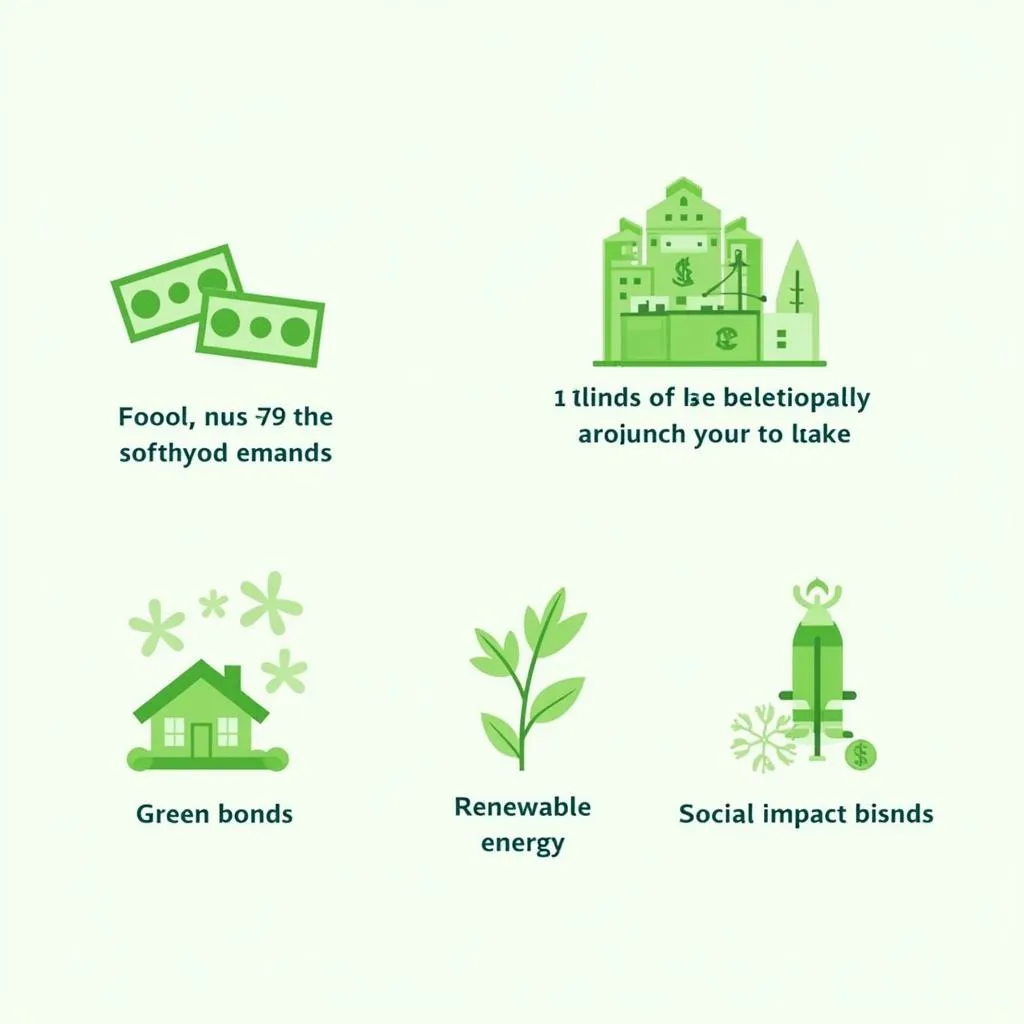Finance is often seen as a necessary evil, a system focused solely on profit and personal gain. But what if we told you that finance could be a powerful force for building a good society? It’s time to shift the narrative and explore how money, when used ethically and responsibly, can be the driving force behind a more equitable and sustainable world for everyone.
Redefining “Wealth” in the Context of a Good Society
The pursuit of wealth often dominates conversations about finance. But in a truly good society, the definition of wealth expands beyond mere monetary value. It encompasses social well-being, environmental sustainability, and widespread access to opportunity.
 Sustainable Finance Investments
Sustainable Finance Investments
Imagine a world where financial systems prioritize investments in renewable energy, affordable housing, and quality education. This shift in focus represents a fundamental change in how we view “wealth” – from individual accumulation to collective prosperity.
The Role of Ethical Finance in Shaping a Just World
Ethical finance goes beyond simply avoiding harmful practices. It actively promotes social and environmental good. Impact investing, for example, channels funds towards businesses and projects tackling critical issues like poverty, inequality, and climate change.
Furthermore, microfinance institutions provide financial services to low-income individuals who lack access to traditional banking, empowering them to build businesses and improve their lives. These are just two examples of how ethical finance can be a catalyst for positive change.
 Microfinance Empowering Women Entrepreneurs
Microfinance Empowering Women Entrepreneurs
The Power of Transparency and Accountability
For finance to truly serve the good society, transparency and accountability are paramount. Financial institutions must be held responsible for the social and environmental consequences of their investments. This requires robust regulations, independent oversight, and a commitment from financial actors to prioritize ethical considerations.
When individuals and organizations demand transparency, they create a system where responsible practices are rewarded, and harmful ones are penalized. This collective action is crucial for building a financial system that benefits everyone.
Bridging the Gap: Financial Inclusion for a More Equitable Society
A good society ensures that everyone has the opportunity to participate in and benefit from the economy. Financial inclusion, which refers to the accessibility and affordability of financial services, is essential for achieving this goal.
 Financial Literacy Workshop in a Diverse Community
Financial Literacy Workshop in a Diverse Community
By expanding access to financial services, we empower individuals, families, and communities to build assets, manage risks, and invest in their futures. This, in turn, leads to greater economic stability, reduces poverty, and fosters more inclusive societies.
Conclusion: Building a Better Future Together Through Responsible Finance
Finance, when approached ethically and sustainably, has the potential to be a transformative force for good. By embracing a broader definition of wealth, promoting transparency and accountability, and striving for financial inclusion, we can build a world where money serves the needs of humanity and creates a brighter future for all.
 using WordPress and
using WordPress and